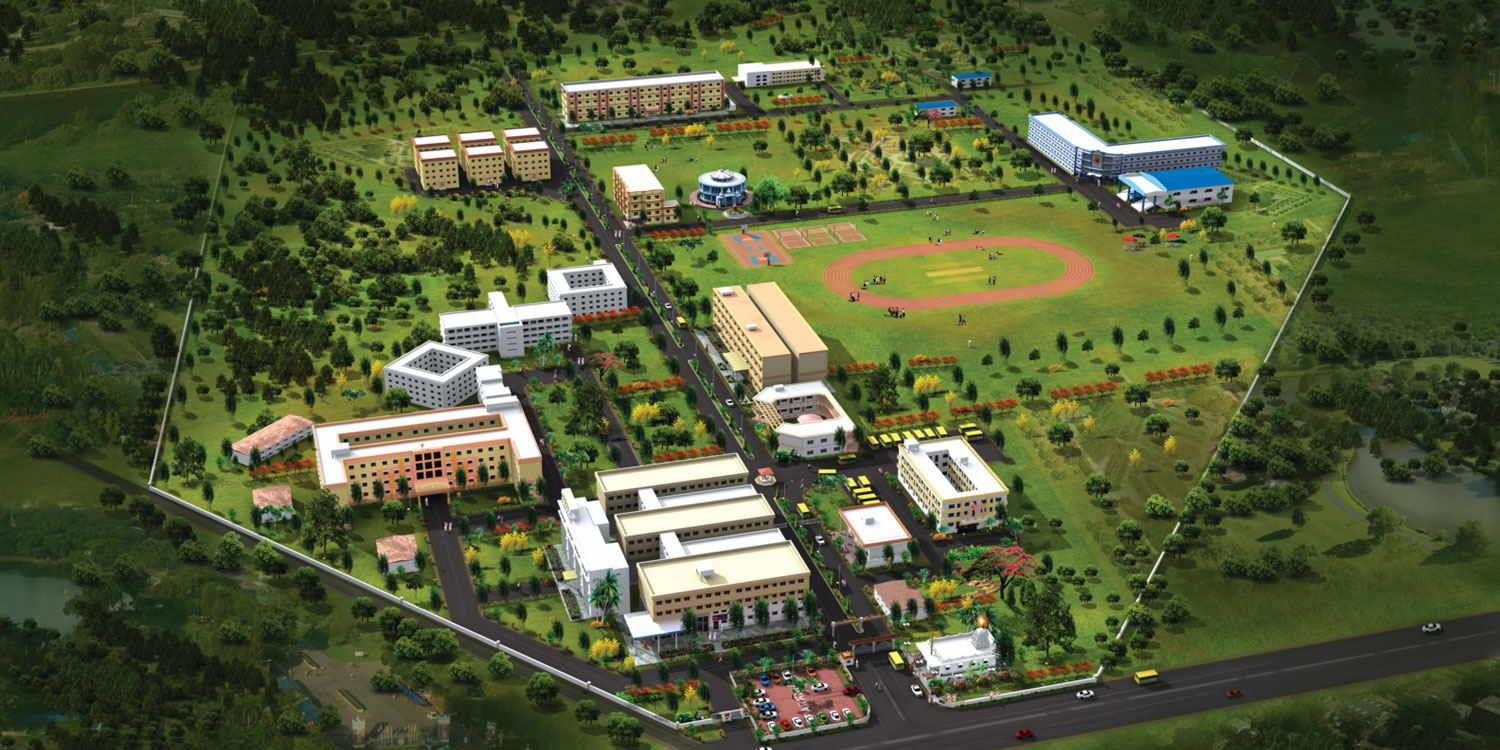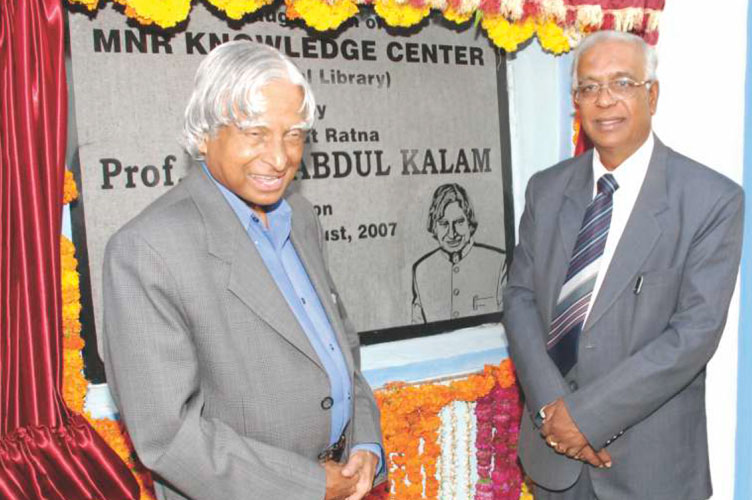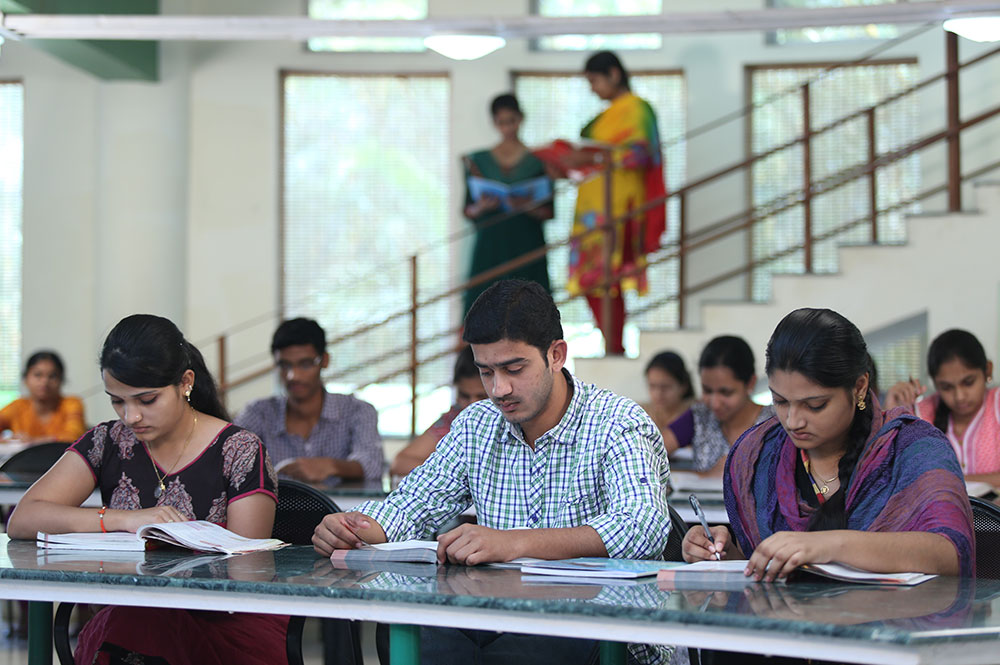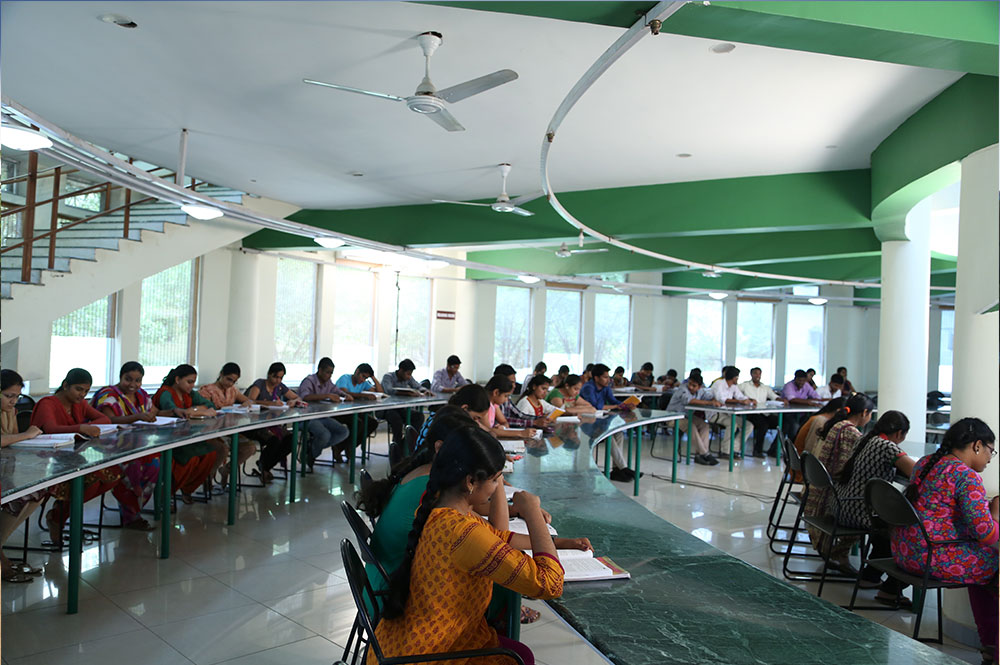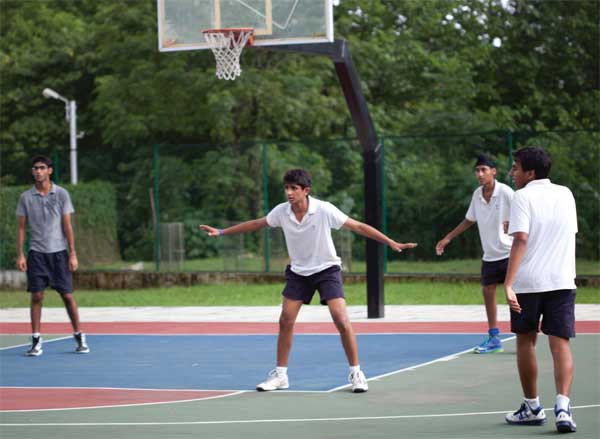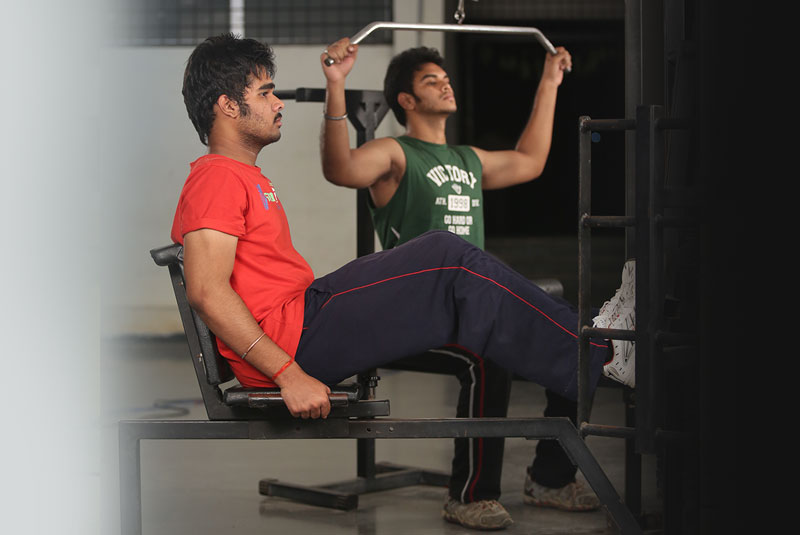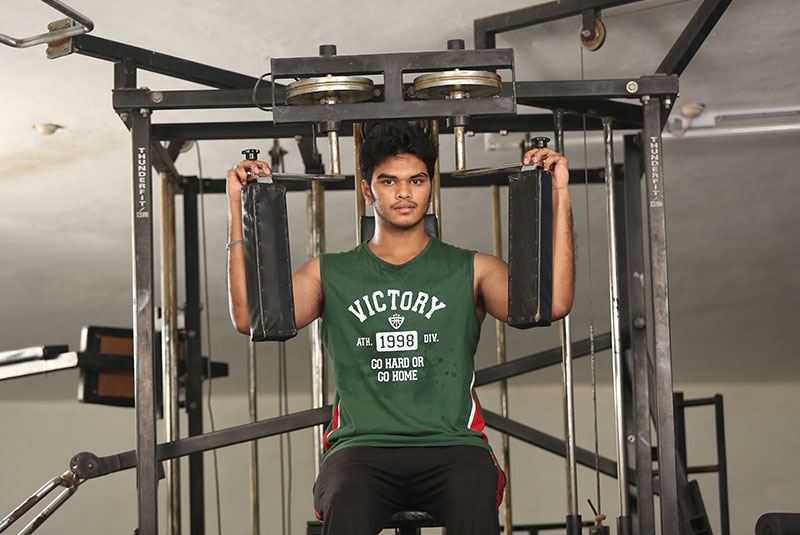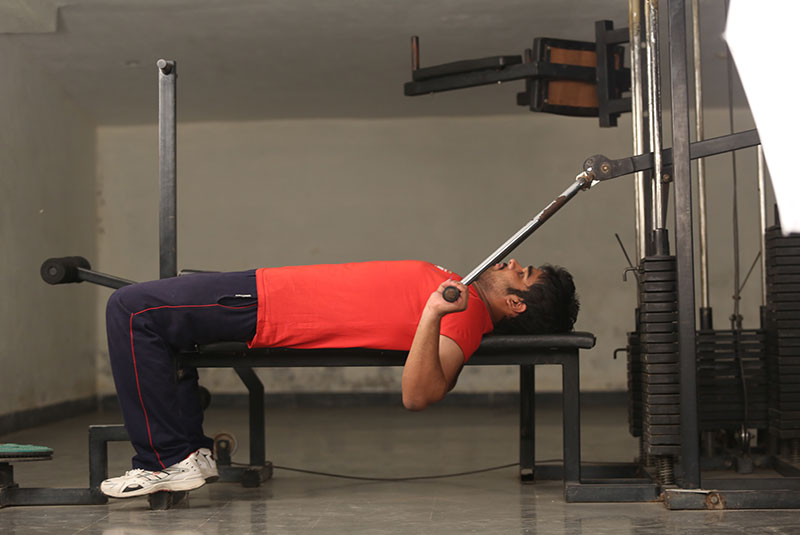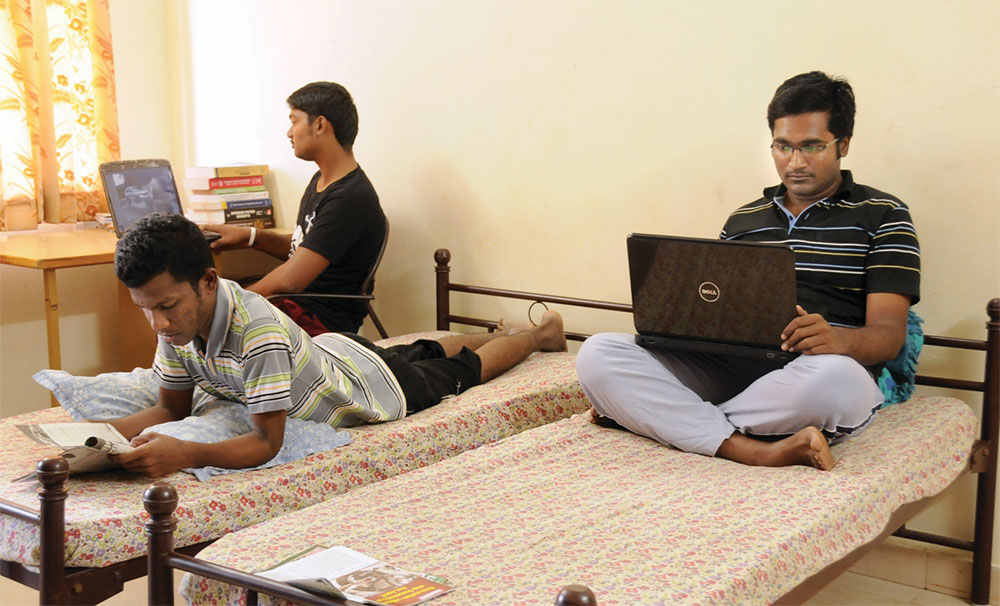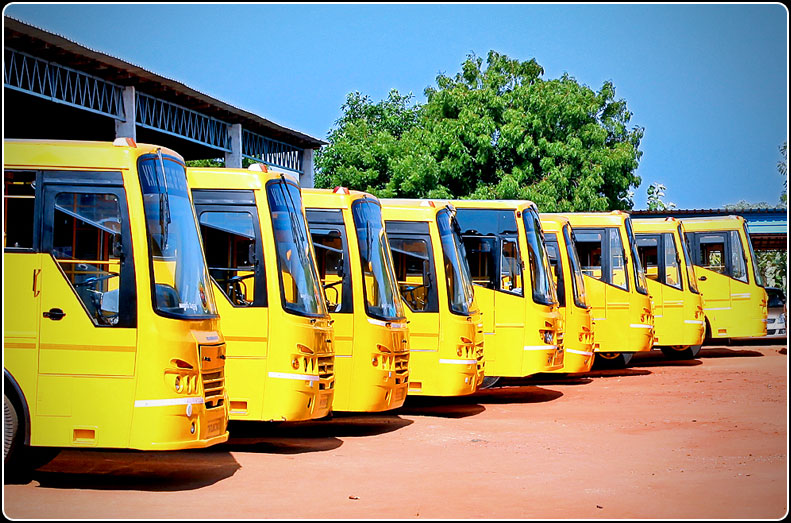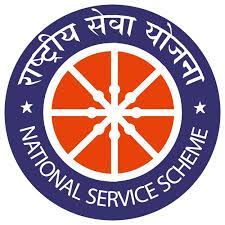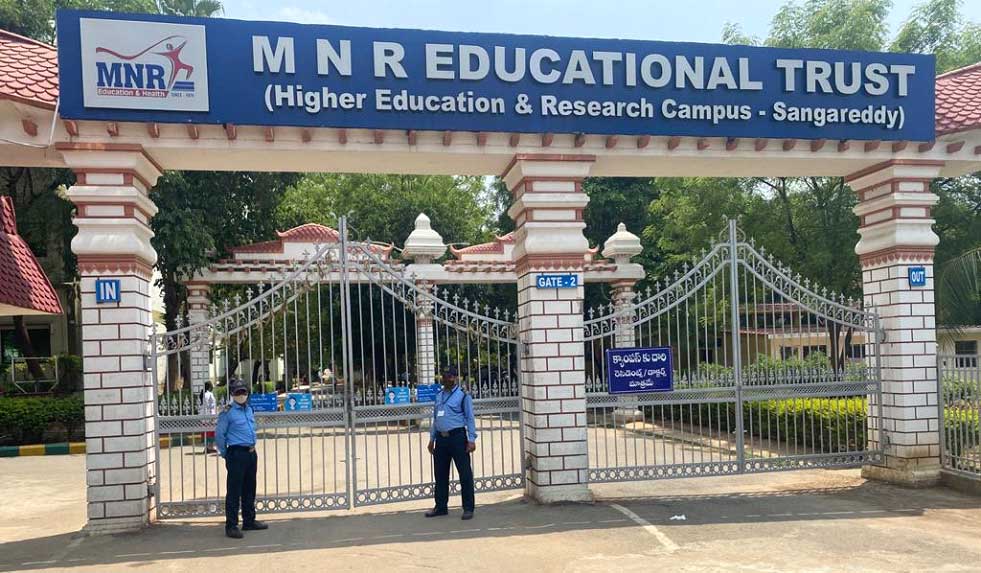Sports & Recreation
The modern education system is very tedious and demanding. So, the students go through tremendous pressure to cope up with their academic demands. They need to take a break from the monotony now and then.
Considering all the aspects and keeping the well-being of the students, MNR Educational Trust has planned the academic year in such a way that academics, sports, and other activities are fit in perfectly. Students are taught about basic health education, personality development, fitness, and various types of conditioning exercises to develop their proficiency and health.
These activities bring them fun, relaxation, develop their personality and improve their physical fitness, and thus they can stay focused on their academics. MNR-HERA has vast playgrounds and well-developed courts for Cricket, Football, Volleyball, Basketball, and Badminton, etc. There are many other leisure time activities especially for girls apart from participating in sports, like joining a creative or literary club.
MNR gives rewards to the students who attain individual honors in the district, state, and national level events. MNR has a gym attached to the department. Several single and multi-station machines and other weight training accessories allow the students to train themselves to keep fit.
A trainer is always available to oversee and instruct them. From time to time, the fitness center is upgraded with the latest fitness equipment. As a regular development program, MNR has plans to construct a swimming pool at MNR-HERA Campus.

